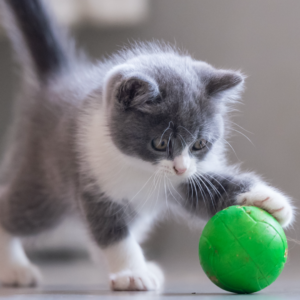Have you noticed your older cat (usually over 10 years of age) constantly bothering you for more food, yet no matter how much they eat is still losing weight? Is your cat starting to meow or cry excessively, seem to be hyperactive and has a dry and flaky coat?
If you have noticed some of these symptoms your cat may have a Chronic Condition called Feline Hyperthyroidism.
Feline Hyperthyroidism is a fairly common disease where the thyroid gland becomes enlarged and will produce too much of the thyroxin hormone. This hormone is very important and regulates their metabolism, heart rate, blood pressure and body temperature. Therefore if Feline Hyperthyroidism is left untreated it can cause serious effects to your cat and could eventually result in death.
Hyperthyroidism is fairly easy to diagnose by taking a simple blood test to check thyroxin levels.
There are 4 different options to treat Feline Hyperthyroidism.
- Oral Medication, to slow down the production of the hormone. It will take about 2-3 weeks before you see the effects of the medication.
- Diet, called y/d, which has a limited amount of iodine that in turn reduces the production of the thyroxin.
- Radioactive Iodine Therapy, destroys the abnormal thyroid tissue.
- Surgery to completely remove the abnormal thyroid tissue.
The first 2 are the most common options for treatment and the decision as to which treatment is best for your cat would need to be discussed with your veterinarian. Once a decision has been made your cat will need to be seen in 4weeks, then 8-10 weeks to recheck the thyroxin levels and blood pressure to ensure the treatment is working appropriately. After the proper dosage has been found we will recheck the levels every 6 months and every year they will need a Chronic Care exam.
North Hill Animal Hospital has a Chronic Care Program set in place for patients with chronic conditions. With this program all patients receive a package outlining the disease, treatment and management.
Also with this program every time a patient comes in for their Annual Chronic Care Exam $5.00 will be put into the Oscar Fund, which is outlined on our website.
Written by Bonnie Tatton. V.T.



